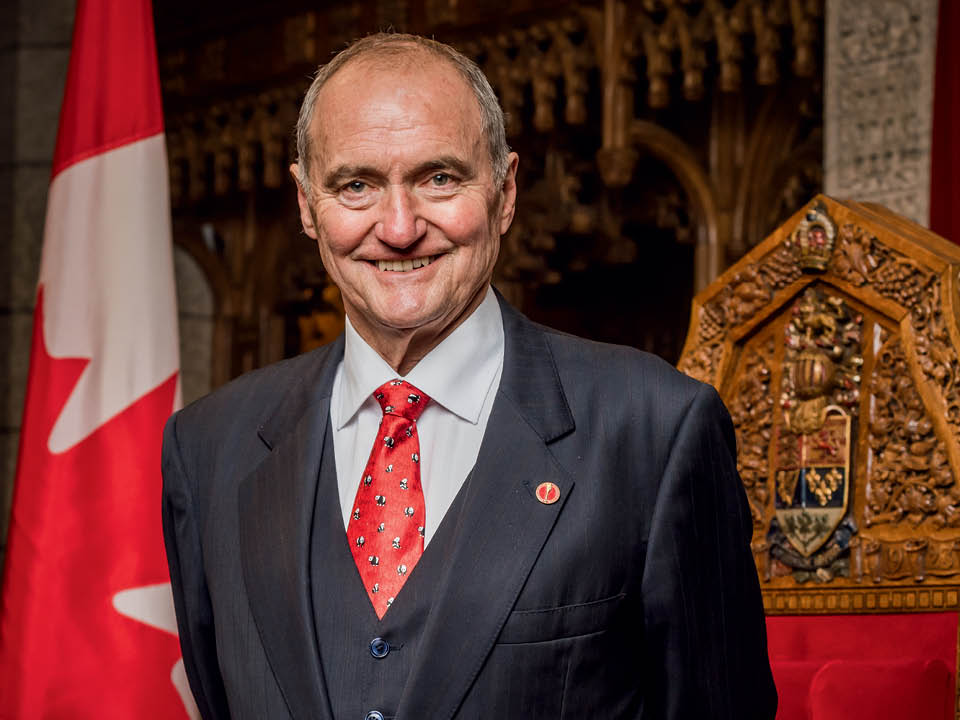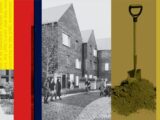In 2001, Joseph Day was called to the Senate upon the recommendation of former Prime Minister Jean Chrétien. He spoke with Trisha Elliott about China, the role of NATO and how faith informs his life.
Trisha Elliott: In January, you led a delegation of Canadian parliamentary representatives on a trip to China as tensions boiled around the detainment of Canadians Michael Spavor and Michael Kovrig. Did you achieve what you had hoped to?
You may unsubscribe from any of our newsletters at any time.
Joseph Day: Yes, we did. We had a frank exchange. We didn’t rub salt in wounds. We know that we have a difference of opinion and we won’t resolve it in our group but it’s important that we reiterate the rule of law and the system that we have and why things are happening the way they are. We are following a set of rules and procedures that have long been in place and that are fair. All of that is important to exchange with our colleagues from the National People’s Congress, which is the equivalent of Parliament.
TE: China seems to be balling up trade rules with criminal matters.
JD: Yes. We try to explain to them that our systems are separate. It’s not an easy situation. The important thing is to keep talking, to be reasonable with one another and hopefully a solution will come about. China has been working on modernizing its judiciary and its penal system but it’s a huge, huge country and they are going very slowly on some of the things that we take for granted.
TE: Are there other things that Canadians take for granted?
JD: It’s surprising the number of Christian churches that are still in existence in China. They don’t have a prominent position in the geography like most churches do in North America and in Europe but the churches are there, trying to help out the less fortunate. A lot of [church] activities are allowed but if they grow too quickly, the Chinese government feels threatened so they have to walk a fine line.
More on Broadview: Ugandan educator teaches kids ethics without religion
TE: As the international vice president of the NATO parliamentary assembly, what do you think are the most pressing concerns that NATO is addressing today?
JD: There are many. We need to try to help the nations that are being occupied and unfairly treated by Russia. NATO plays an important role in trying to stop any further aggression. In China, the goal is relation-building. For example, by working with them to our mutual advantage to stop piracy off the coasts of Ethiopia and northern Africa.
TE: Closer to home, you are concerned about how our veterans are treated.
JD: Veterans Affairs is selling off beds in hospitals created after the First World War. We have rules that say more recent veterans of Afghanistan and other areas in Eastern Europe are not entitled to the Veterans Affairs beds in different parts of the country. I’ve always felt that individuals can be treated much more compassionately in designated institutions like veterans’ hospitals designed for special types of combined injuries like post-traumatic stress, operational injuries and physical injury. We owe so much to our veterans. They need our support and I’m afraid we’re still not there.
TE: You have taken a strong position on issues like transparency around the Phoenix system, rights of seasonal workers and access to service dogs. Does your faith inform your outlook?
JD: I don’t wear my faith on my sleeve but I have no doubt that it gives me direction when I need it. I can fall back on the teachings that I have been familiar with all my life. I attend the United church in Hampton, New Brunswick. It’s the same church in the little community I grew up in. I think the church performs an important role in supporting the community and I want to be part of that.
This interview was condensed and edited for clarity. It first appeared in the October 2019 issue of Broadview with the title “My faith gives me direction.” For more of Broadview’s award-winning content, subscribe to the magazine today.














